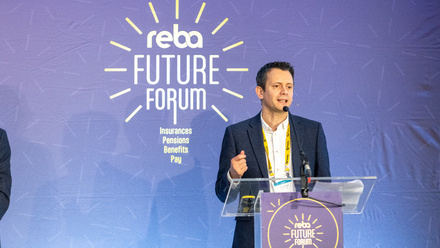Flexible furloughing and the provision of pandemic-related employee benefits

However, against the background of this good news, it is clear that redundancies will continue to rise as the Furlough Scheme is phased out in the period to 31 October. It is expected that approximately one million jobs will still be furloughed at this point, having dropped from the peak of more than 8.4 million in May 2020. However, predictions are that the majority of those furloughed will be returning to work.
Returning to work
As employees return to work, whether in the workplace or from home, employers must make adjustments to minimise risk for their employees. In many cases this will involve:
- providing new benefits to employees, such as COVID-19 tests and Personal Protective Equipment (PPE);
- changing the way benefits are provided, such as stopping private use of a company car; or
- aiding effective working from home e.g. with provision of office equipment or broadband.
HMRC has issued guidance on the income tax treatment of certain expenses and benefits provided during the pandemic, as set out below.
Tests and PPE
Government provided coronavirus tests as well as antigen testing kits provided by the employer/a third party, are not subject to income tax nor Class 1A National Insurance Contribution (NIC).
If an employee’s job requires PPE use, this must be provided free and is not taxable. If the employee requires PPE to carry out their role and the employer cannot provide it, the actual cost incurred by the employees must be reimbursed by the employer. This is non-taxable and employees cannot claim tax relief on these expenses.
Travel and subsistence
The tax treatment of travel and subsistence has always been complex and changes brought about by the pandemic have added complication.
We have heard of employees moving into their workplace to continue working during the pandemic. However, the tax treatment of the provision of this living accommodation may not be what you expect:
- at a permanent workplace: taxable unless a statutory exemption is available (e.g. necessary for proper or better performance and customary). This would include a warden at sheltered accommodation who is on call outside normal working hours. It is important to consider each case to determine if an exemption will apply
- working at a temporary workplace (for less than 24 months): tax free.
Provision of board and lodging is taxable, but can be included on the employer’s PAYE settlement agreement (PSA).
Some employees have volunteered during furlough, with employers refunding fuel/mileage costs. This is taxable whether a private or company car is used and should be reported through a PSA as a coronavirus-related benefit. Volunteer mileage should not be taken into account for the purposes of the car fuel benefit charge.
For a company car to be unavailable for private use, and therefore non-taxable, HMRC take the view that the car, or at least the keys/fobs, must be returned to the employer/third party at the employer’s direction.
Working from home
Where employees work at home because their workplace is closed or they are self-isolating, the following benefits may be provided tax free:
- mobile phone
- broadband connection – if needed but not available, the fee can be reimbursed if private use is limited
- laptops, tablets, computers, and office supplies – provided no significant private use
- office equipment – costs reimbursed by the employer (note, if the equipment is bought by the employer and transferred to employee’s ownership that is taxable), or the employee can claim tax relief for the exact costs not reimbursed on form P87
- additional expenses (e.g. heating) – employees can claim £6 per week with no need for evidence of costs.
Loans and Employee Car Ownership Schemes (ECOS)
Hardship loans follow the normal rules, so loans up to £10,000 in total are tax free. Employee Car Ownership loan periods can be extended for a few months provided they do not exceed four years.
Reporting
Expenses/benefits related to coronavirus can be reported on the PSA. Employers should apply for a new PSA before 5 July following the tax year and should inform HMRC of any changes. Otherwise, benefit reporting via the payroll or P11Ds should continue as normal.
So, as you bring your employees back to work there is some flexibility in the benefits you can provide to help that process to be as efficient and effective as possible. However, the rules are quite complex so it is important to get specialist advice if you are in any doubt.
The author is Caroline Harwood, partner and head of share plans and employment tax at Crowe UK.






